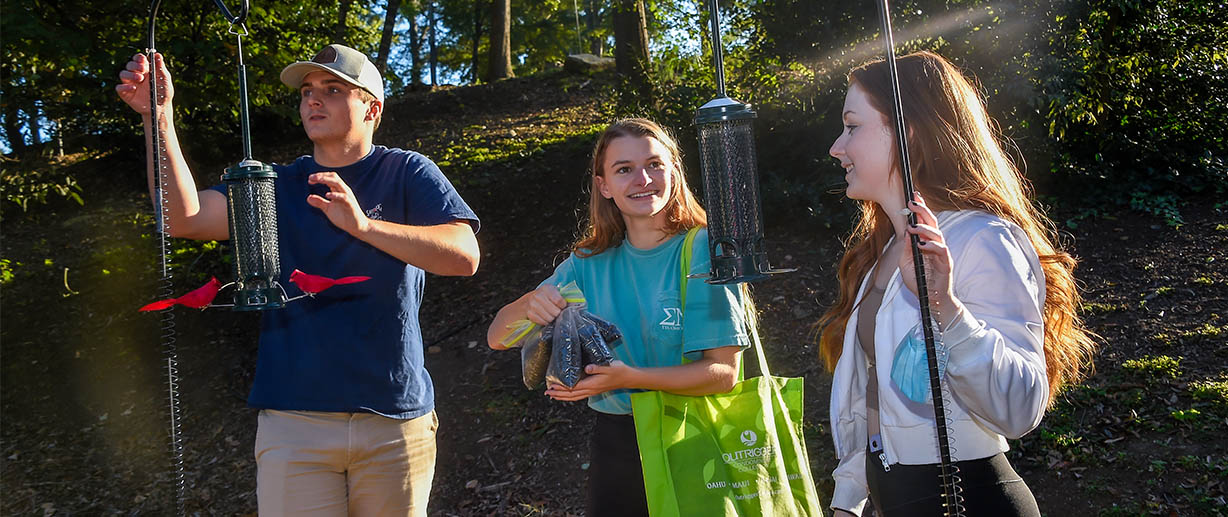By Robert W. Dalton
Dr. Lori Cruze and Dr. John Moeller and their students are working on a research project that’s for the birds. Really.
The purpose of the project is to measure the impact of different variables on the foraging habits of songbirds. Cruze, assistant professor of biology, and one of her classes started the project in the spring, setting up bird feeders on the periphery of campus. They measured the amount of seed the birds ate and whether the amount changed depending on whether the seeds were shelled or unshelled. They also introduced predators (fake owls) to gauge the impact of their presence on the birds’ eating habits.
Tucker Couch ’24, an undeclared major from Bristol, Tennessee, took it a step further during Interim, introducing competitors into the project and measuring their impact. He used fake redbirds to simulate male Cardinals, which are known to be aggressive.
“This has helped me to get a feel for what research is like,” Couch says. “It’s one thing to talk about it in class, but it’s a whole different thing to go out and do it. It’s helped me to understand the whole process.”
Moeller’s animal behavior class joined in for the fall semester. They added feeders to the central campus and observed which birds were coming to particular feeders and at what times. They also introduced different colored competitors to measure their impact.
“We’ve been observing to see how the birds interact, which sites have the most traffic and how much the birds are eating,” says Bradleigh Mills ’22, a biology and Spanish double major from Boiling Springs, South Carolina.
Alexis Tomlin ’22, a biology and math double major from Myrtle Beach, South Carolina, says foot traffic also has an impact on the birds’ foraging rates.
“We’d sit there with our binoculars and our species books and we’d hear birds and see them in the trees, but we wouldn’t see them on the feeders,” she says.
Moeller, professor and chair of biology, says the next step will be for students to analyze the data and present the key findings. He says he hopes this project will spur related studies.
“We are trying to, as best we can, really model at an undergraduate institution what science is all about as opposed to canned labs that have extreme limitations,” Moeller says.
Cruze says while gathering data was the primary objective, there was a bonus aspect to the project.
“There are mental health benefits from being able to sit and relax, observe birds and hear their songs,” she says. “Overall, there is a wellness benefit to being able to bring more birds to campus.”
